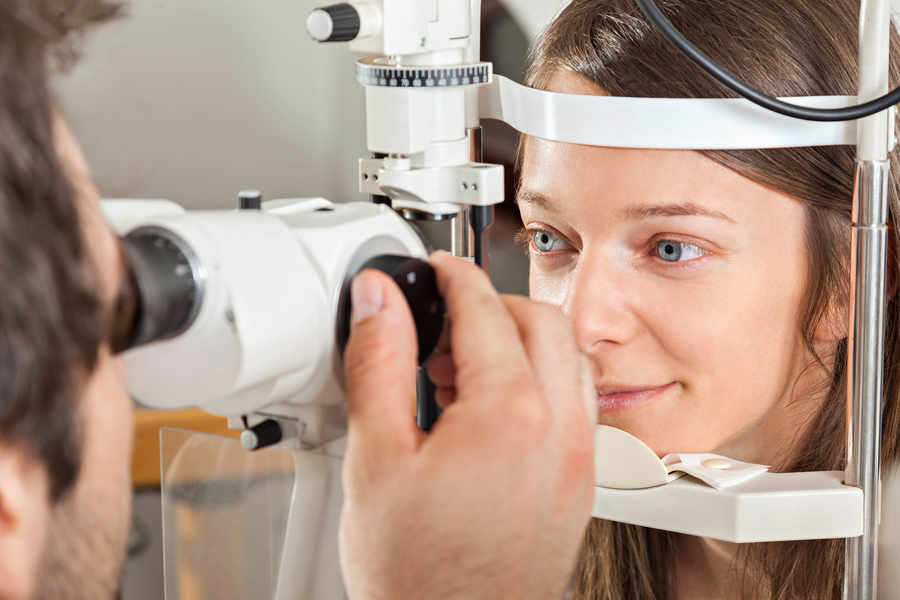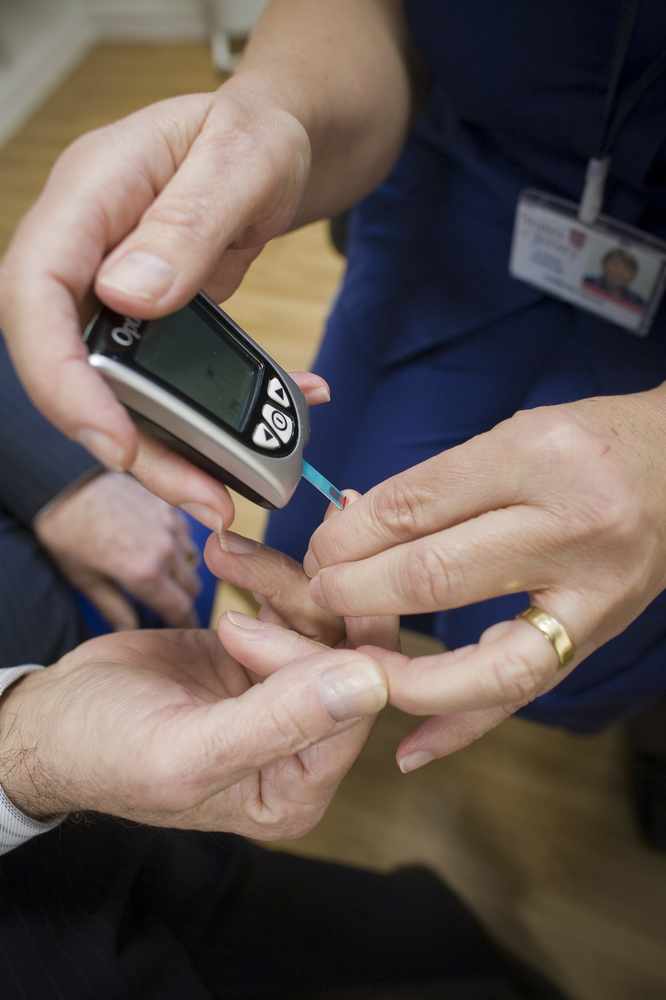- Chairman of Diabetes Jersey says that thousands of diabetics in Jersey are being failed by the Hospital
- Brian Le Marquand wants diabetics to be seen for eye tests more regularly – as they are in the UK
- Regular eye tests are very important for diabetes sufferers, who can have sight complications
- Is there too much reliance on Jersey charities? Take part in our poll below
THOUSANDS of diabetics in Jersey are being failed by the Hospital because they are waiting up to four years to undergo a vital eye check which could prevent them from going blind, an Island charity has said.
Brian Le Marquand, chairman of Diabetes Jersey, has criticised the Hospital for not keeping waiting times for the test down, despite UK guidelines which state that diabetics should undergo the screening every year.

NHS guidelines states that everyone with diabetes who is 12 years of age or over should be invited to have their eyes screened once a year.
Eye screening is a key part of diabetes care.
Those with the condition are at risk of damage from diabetic retinopathy, a condition that can lead to sight loss if it is not treated.
Diabetic retinopathy occurs when diabetes affects small blood vessels, damaging the part of the eye called the retina. When the blood vessels in the central area of the retina are affected, it is known as diabetic maculopathy.
Diabetic retinopathy is one of the most common causes of sight loss among people of working age but the condition does not have any noticeable symptoms in the early stages.
Screening is a way of detecting the condition early before people notice any changes to their vision.
He added that the 4,000 Islanders that have been diagnosed with diabetes were now being ‘let down’.
The Hospital today said that one of the reasons why the long waiting list had developed was that it was now carrying out longer individual tests to meet UK standards.
Meanwhile, pressure on the Island’s diabetes services is expected to intensify as current diagnosis levels suggest that nearly one in eight Islanders will have the condition by 2020.
Eye screening is a key part of diabetes care because those who have the illness are at risk of damage from diabetic retinopathy – a condition that can lead to sight loss if it is not identified and treated.
Mr Le Marquand says Diabetes Jersey, which has raised nearly £2 million for the Hospital in the last few years, offered to take over the full screening process at a cost of more than £50,000 per year in 2013 after it emerged that there was a waiting list of more than two years.
The Hospital declined the offer but launched its own drive to cut the waiting list, with 1,100 patients being seen within a six-month period in 2014.
However, the initiative, which ran from March, stopped in September and Mr Le Marquand said that the waiting list has soared once again to an ‘unacceptable’ level.
He added: ‘It has slipped to at least three or four years. There is no reason why we in Jersey should be any worse off than elsewhere. Diabetics on the Island have been let down. It’s not right that Islanders are not getting the service that is normal elsewhere.

‘It’s no use use panicking every now and again and clearing some of the waiting list. We need a proper solution.’
Mr Le Marquand said that the charity get on ‘exceedingly well’ with the Hospital management and that he expected progress would be made shortly as Hospital director Helen O’Shea has acted quickly when the charity has highlighted issues previously.
Mrs O’Shea said that Islanders with diabetes should receive the same retinal screening service as people in the UK and that she hoped a solution to the issue would be implemented by the end of the year.
She added: ‘The procedure for retinal screening has been improved in order to replicate UK standards and screening now takes longer.
‘This means that the department needs to provide more capacity to meet the needs of the growing numbers of people in Jersey with diabetes – we are currently working to identify the resources to deliver this additional capacity.’

Diabetes:
Diabetes is a condition where the amount of glucose in the blood is too high because the body cannot use it properly. This is because the pancreas does not produce any insulin, or not enough insulin, to help glucose enter the body’s cells – or the insulin that is produced does not work properly.
There are two types of diabetes, Type 1 and Type 2
Type I diabetes:
This develops when the insulin-producing cells in the pancreas have been destroyed. Insulin is the hormone produced by the pancreas that allows glucose to enter the body’s cells, where it is used as fuel. This may be triggered by a viral or other infection and, whilst there is a lot of research being undertaken into what makes these cells breakdown, the causes are at this time unknown.
Type 2 diabetes:
This is the most common form of diabetes, and people can live with it for many years without being aware that they have the condition.
There are many factors which can put people at risk, including:
• A close family member has the condition
• Being overweight or if your waist is 31.5 inches or over for women; 35
inches or over for Asian men and 37 inches or over for white and black men.
• High blood pressure or you’ve had a heart attack or a stroke.
• If you’re a woman with polycystic ovary syndrome and are overweight.
• If you have been told you have impaired glucose tolerance or impaired fasting glycaemia.
• If you’re a woman and you’ve had gestational diabetes.
Symptoms of diabetes:
• Increased thirst
• Frequently going to the toilet to pass water, especially at night
• Extreme tiredness
• Weight loss
• Blurred vision
• Genital itching or regular occurrence of thrush






